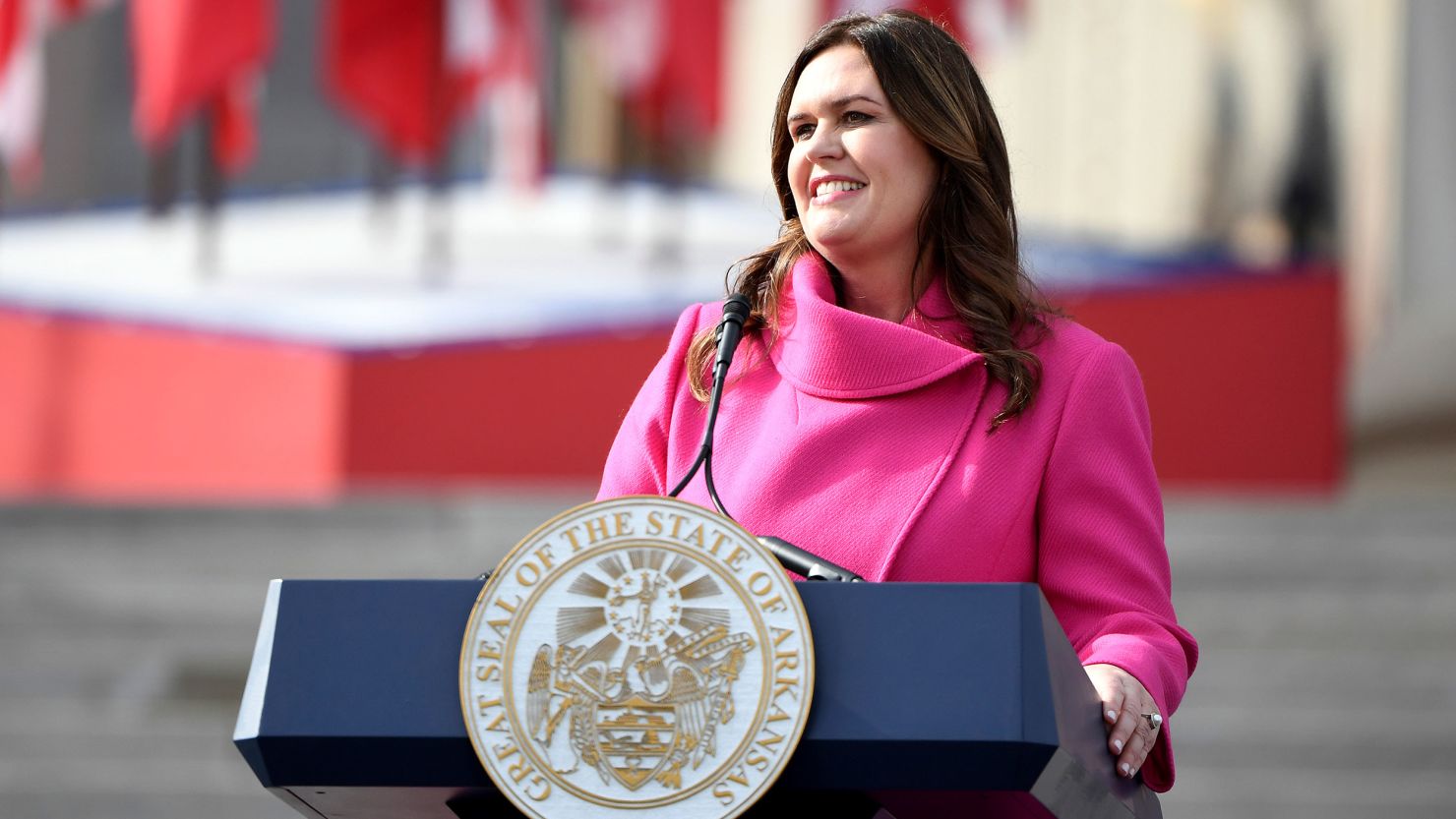Editor’s Note: Ed Morales (@SpanglishKid) is a journalist and lecturer at Columbia University’s Center for the Study of Ethnicity and Race and the Craig Newmark Graduate School of Journalism at CUNY. He’s the author of the book “Latinx: The New Force in American Politics and Culture.” The views expressed are his own. View more opinion articles on CNN.
In her first week as governor of Arkansas, Sarah Huckabee Sanders declared the use of the word “Latinx” must be eliminated from official government document use. Her executive order “to respect the Latino community by eliminating culturally insensitive words from official use in government” is part of a thinly disguised “anti-woke” agenda adopted by a number of conservative Republicans.

For those who do use the term – or for those who object to its use – there’s no one-size-fits-all approach to the question that would warrant an oversimplified approach like Sanders’ order. What Sanders has characterized as “respect” is actually a patronizing attempt to shut down a debate among Latin American descended people in the US about how to name themselves.
The executive order banning “Latinx” was one of eight that she signed in the 48 hours since taking office. Some of the orders concern hiring freezes on government agencies. But the “Latinx” order, as well one prohibiting “indoctrination and critical race theory in schools,” represent a new brand of red meat in the Republican agenda.
Sanders isn’t alone – Virginia Gov. Glenn Youngkin issued an executive order on his first day in office “to restore excellence in education by ending the use of divisive concepts, including Critical Race Theory, in public education.” Florida Gov. Ron DeSantis has become the anti-woke national leader, having successfully championed and signed into law the dystopian “Stop WOKE Act,” prohibiting teaching or instruction that “espouses, promotes, advances, inculcates, or compels” students or employees’ race-based thinking or analysis. The law is already creating uncertainty and anxiety among students and professors in Florida universities.
While Sanders’ move against “Latinx” is not explicitly calling out race-based thinking, it performs an interesting maneuver by asserting that the Latino/a community itself is hurt by the use of this term. The order cites a 2020 Pew Research report, which found that only 3% of Hispanics use the term nationwide, and that 76% had never even heard of the term. While the Pew Research Center is a well-respected source, repeated use of these findings to the exclusion of any other studies is disingenuous. For instance, more recently in March 2022, an Axios-Ipsos Latino poll found that 53% of Mexican Americans, 47% of Puerto Ricans and 42% of Cubans, long the three major Latino/a groups in the US, approve of the term.
The second reference used in the executive order, that “The Real Academia Española, the Madrid-based institution which governs the Spanish language, has officially rejected the use of ‘x’ as an alternative to ‘o’ and ‘a’ in Spanish” is equally problematic. Latin Americans have always had a tricky relationship with their mother country. While Latin Americans share an appreciation of Iberian language and culture, there is also a strong need for independence from it. No Latin American country speaks Spanish the way it’s spoken in Spain – just as few Americans use the Queen’s English and Canadian French sounds completely different from the streets of Paris.
Besides, Spanish is permeated with English words. Latinos download files from the “internet.” When Puerto Ricans answer the phone, they say “hello.” The use of the term “Latinx” represents the mixing of English and Spanish that has historically occurred with US Latinos through bilingualism and code-switching. A 2017 Pew Hispanic Research report suggests that only 6% of second-generation Latinos are Spanish-dominant.
Ironically, both rationales have also been used by moderate Democrats to attack “Latinx” as well. In 2021, the League of United Latin American Citizens (LULAC), a leading civil rights organization, also banned “Latinx” from all communications. Rep. Ruben Gallego of Arizona went as far as going on HBO’s “Real Time with Bill Maher” to denounce the term as one invented and forced on Latino/as by White elites. (HBO shares a parent company with CNN.)
Yet Latinx is not the product of White elites, but came out of a decade’s old debate between US Latino academics and activists, and was soon adopted by the Hispanic LGBTQ community because of the “x’s” significance in moving away from masculine and feminine designation of nouns in Spanish.
Latino Democrats who want to identify “wokeness” as a bogeyman unbefitting of what they think of as their identity spotlight what many progressives see as a failing of that party: a willingness to shift to the right for fear of losing voters to Republicans. The strategy doesn’t seem to make a huge difference – Hispanics overwhelmingly embraced Democratic candidates in the 2022 midterm elections whether they used “Latinx” or not.
The bottom line about the debate over “Latinx” – or “Latine,” another non-binary term whose use is increasing, or any future term that may arise for that matter – is that it should be something decided by the Hispanic community, not by a governor prone to gaffes and tone-deaf statements.
With her executive order, Sanders is making sure the debate around “Latinx” drowns out more important issues in the community. Her anti-woke rhetoric will do nothing to address the economic issues that are front and center in the minds of Latino/as in the US, including in Arkansas, one of our nation’s poorest states.
The jury is still out on “Latinx,” and the new term, “Latine.” But as long-standing homophobic prejudices dissolve and as gender identities become more diverse, perhaps an increasing amount of Latinos will opt for some sort of alternative term. This latest Sanders misstep only shows that the needs of Latinos can never be reduced to a debate over a label, or a plank of a contrived anti-woke agenda.





